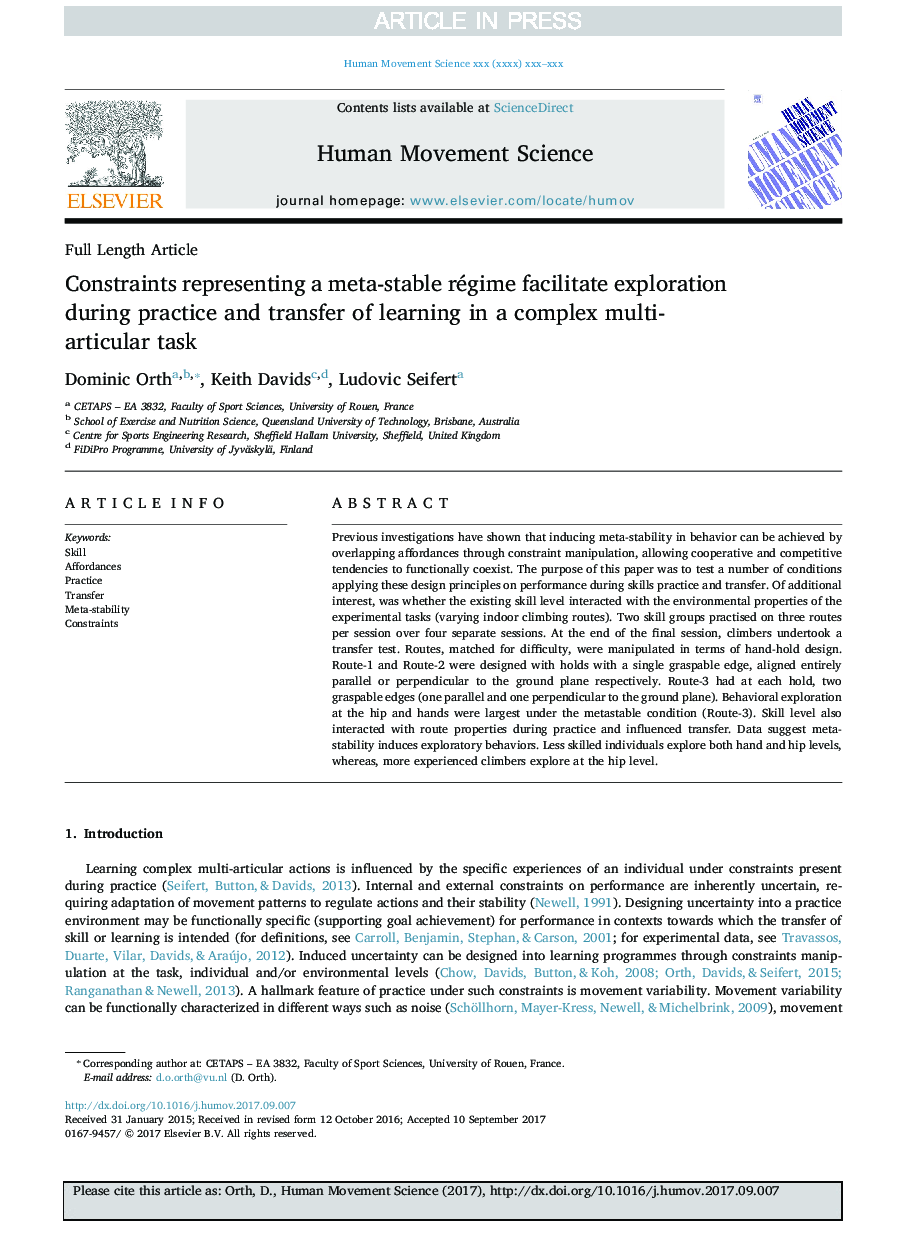| Article ID | Journal | Published Year | Pages | File Type |
|---|---|---|---|---|
| 7291060 | Human Movement Science | 2018 | 12 Pages |
Abstract
Previous investigations have shown that inducing meta-stability in behavior can be achieved by overlapping affordances through constraint manipulation, allowing cooperative and competitive tendencies to functionally coexist. The purpose of this paper was to test a number of conditions applying these design principles on performance during skills practice and transfer. Of additional interest, was whether the existing skill level interacted with the environmental properties of the experimental tasks (varying indoor climbing routes). Two skill groups practised on three routes per session over four separate sessions. At the end of the final session, climbers undertook a transfer test. Routes, matched for difficulty, were manipulated in terms of hand-hold design. Route-1 and Route-2 were designed with holds with a single graspable edge, aligned entirely parallel or perpendicular to the ground plane respectively. Route-3 had at each hold, two graspable edges (one parallel and one perpendicular to the ground plane). Behavioral exploration at the hip and hands were largest under the metastable condition (Route-3). Skill level also interacted with route properties during practice and influenced transfer. Data suggest meta-stability induces exploratory behaviors. Less skilled individuals explore both hand and hip levels, whereas, more experienced climbers explore at the hip level.
Related Topics
Life Sciences
Neuroscience
Cognitive Neuroscience
Authors
Dominic Orth, Keith Davids, Ludovic Seifert,
